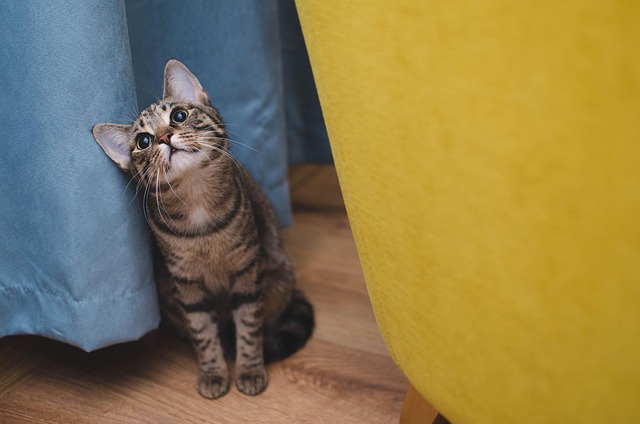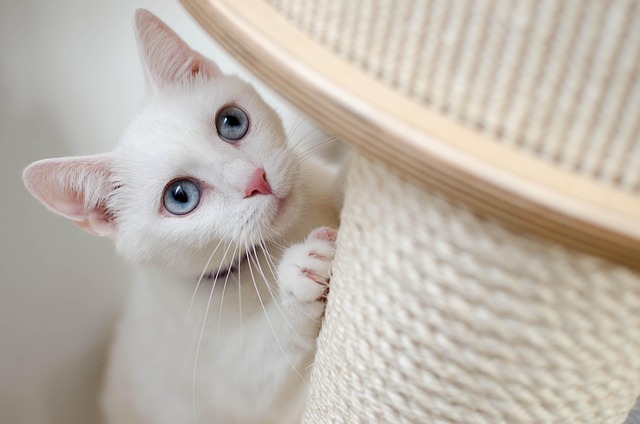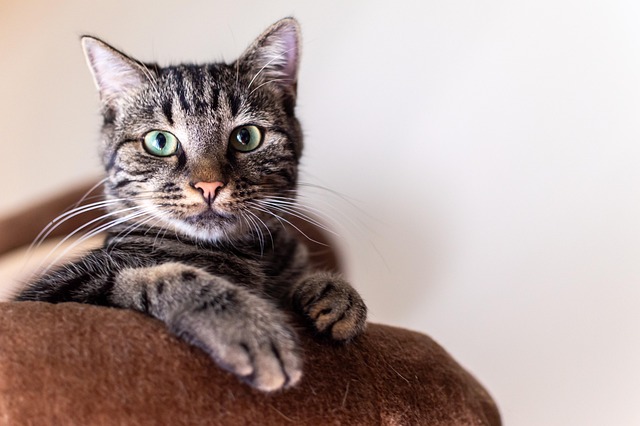Why Is My Cat Pooping Outside the Litter Box? Causes and Solutions
This is a perplexing problem for any cat parent: your cat, who has been perfectly litter-trained for years, has suddenly decided to do their business somewhere else. This behavior isn’t just a mess to clean up; it’s a sign that something is wrong. Whether it’s a new habit or a sudden, one-time occurrence, finding the answer to the question “why is my cat pooping outside the litter box?” is the first step toward the solution.
This article will explore the most common reasons for this behavior, from medical issues to environmental factors, and provide practical, vet-backed advice to help you get your cat back on track.
Key Takeaways
- Pooping outside the litter box is often a sign of a health issue.
- The most common behavioral causes are related to the litter box itself. Is it clean? Is the litter type comfortable? Is the box in a quiet, private location?
- Changes in the home environment, like a new pet or a new person, can cause anxiety that leads to inappropriate elimination.
- Avoid punishing your cat, as it only increases their stress and worsens the problem.
- Use a health tracker, like the Maven’s pet monitor, to track changes in your cat’s activity, rest, and behavior.
Why Is My Cat Pooping Outside the Litter Box?
When your cat defecates outside their litter box, it’s not an act of spite. It’s a clear signal that something in their world isn’t right.
The issue can be a simple matter of a dirty litter box or a more complex medical condition.

Is Maven right for your pet?
Take the quiz and see how Maven can support your pet’s wellness journey.
Why Is My Cat Suddenly Pooping Outside the Litter Box?
If you’re wondering “why is my cat suddenly pooping outside the litter box?” here’s what you need to know: a sudden change in a cat’s behavior is particularly concerning.
If your cat has always used the litter box without issue and then abruptly stops, it’s highly likely to be either a medical problem or a response to a new stressor.
A gradual change might point more toward a litter box aversion, but a sudden shift often suggests an urgent assessment of their health condition.
Medical Reasons for Litter Box Avoidance

Before you consider any behavioral causes, it’s crucial to rule out medical issues that can make your cat poop outside the litter box:
- Gastrointestinal Issues: Conditions like constipation, diarrhea, or inflammatory bowel disease (IBD) can make using the litter box painful or uncomfortable. Your cat might associate the pain with the box itself and try to find a new spot to go.
- Arthritis or Joint Pain: Cats that suffer from joint pain (usually older cats) might find it difficult to climb into or out of a high-sided litter box.
- Urinary Tract Issues: Issues like a urinary tract infection or bladder stones can cause general discomfort that leads a cat to avoid the litter box altogether.
- Dementia: As cats age, their cognitive function can decline. They may become disoriented and simply forget where the litter box is located.
Behavioral and Environmental Triggers
Once medical causes have been ruled out, you can focus on the behavioral and environmental factors that might be at play.
- Litter Box Aversion: This is a very common cause. Your cat may not like the litter box itself, the type of litter, or its location.
- Cleanliness: A dirty or smelly box is often enough to send them searching for a cleaner alternative.
- Litter Type: Some cats dislike scented litters, or might find the texture of a specific litter uncomfortable under their paws.
- Location: Cats prefer a quiet, private spot to do their business.
- Stress and Anxiety: Cats are creatures of habit, and any disruption to their routine can cause stress.
- New Pet or Person: A new addition to the household, whether a new person or pet, can leave them anxious or territorial.
- Changes to the Home: Moving or even rearranging the house can be enough to upset your cat’s sense of security.
- Inter-Cat Conflict: If you have multiple cats, one might be ambushing the other near the litter box.
How to Encourage Your Cat to Use the Litter Box Again

If you’ve determined that the issue is behavioral, you can take a few measures to help your cat ues the litter box:
- Clean the Litter Box Thoroughly: Scoop the box at least once a day and do a full litter change at least once a week. Use unscented soap and water to clean the box itself.
- Experiment with Litter: Try a different type of litter, preferably unscented and fine-grained clumping litter, as it mimics the feel of sand.
- Provide More Boxes: Place these boxes in different, quiet locations around the house.
- Reduce Stress: Provide your cat with safe places to retreat to. Try using feline pheromone diffusers to help create a calming environment.
- Clean Up Accidents Properly: Use an enzymatic cleaner to neutralize the odor. This is extremely important because if the smell remains, your cat will be drawn back to that spot.
When to Call the Vet
If your cat is pooping outside the litter box, you wait to see if it stops. Call your vet immediately, especially if the behavior is new and sudden.
“When a cat suddenly starts pooping outside the litter box, it’s often their way of signaling discomfort — whether from stress, pain, or illness. Identifying the root cause early is key to resolving the issue.” — Carolina Domingues, DVM
How the Maven Pet Health Monitor Helps Track Behavioral Changes
Resolving a litter box issue often requires detailed observation. It can be challenging to notice subtle changes in your cat’s habits, especially if you have a busy schedule.

Maven Pet
Health Monitor
#1 Vet-recommended pet monitor! Tracks activity, rest, respiratory rate, water intake, scratching and other health indicators 24/7
This is where a pet health tracker can be a game-changer.
Maven’s pet health monitor is an activity tracker that helps you monitor your cat’s daily activity levels, rest, and routine.
For example, a sudden drop in activity could signal joint pain, while an increase in restless behavior could indicate anxiety.
With this data readily available, you can pinpoint when the change started and provide your vet with a comprehensive picture of your cat’s health.
Recap
- It’s a Cry for Help: When your cat poops outside the litter box, it’s their way of telling you that something is wrong, whether it’s a health issue or a source of stress.
- Check for Medical Issues First: The first and most important step is to talk to your vet. A sudden change in behavior often points to a health problem.
- Check Their Environment: Once medical issues are off the table, look at your cat’s environment. Is the litter box clean? Is the location private? Is the litter comfortable for their paws?
- Be Patient and Proactive: Don’t punish your cat for accidents. Instead, be patient and observant.
Maven Pet focuses on improving the quality of life of our pets with technology, using artificial intelligence (AI) to enable proactive pet care. By accurately collecting and monitoring pet data 24/7 and flagging any irregularities, Maven Pet empowers pet parents and veterinarians to stay ahead of potential health issues, ensuring the well-being and longevity of our beloved companions.




